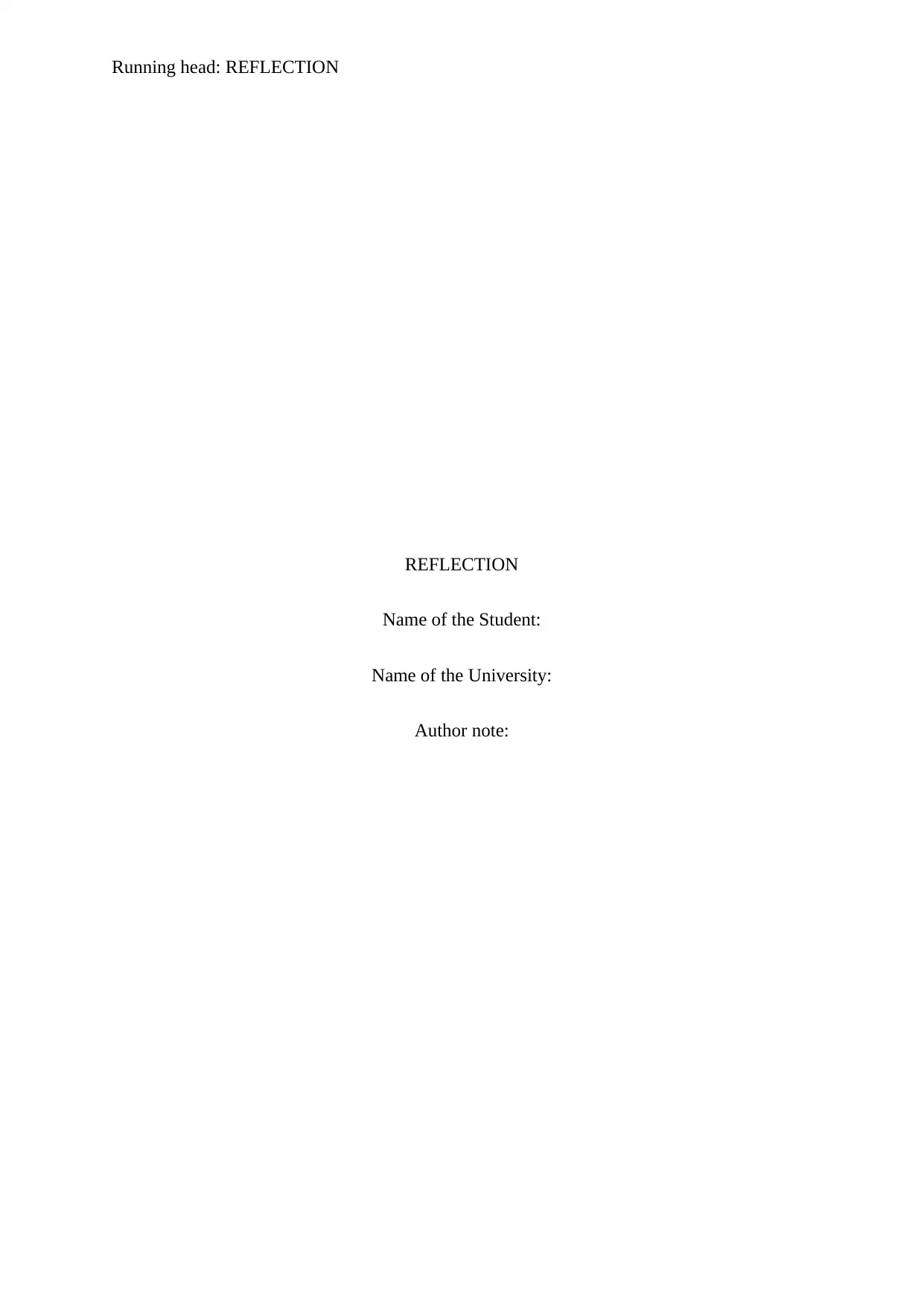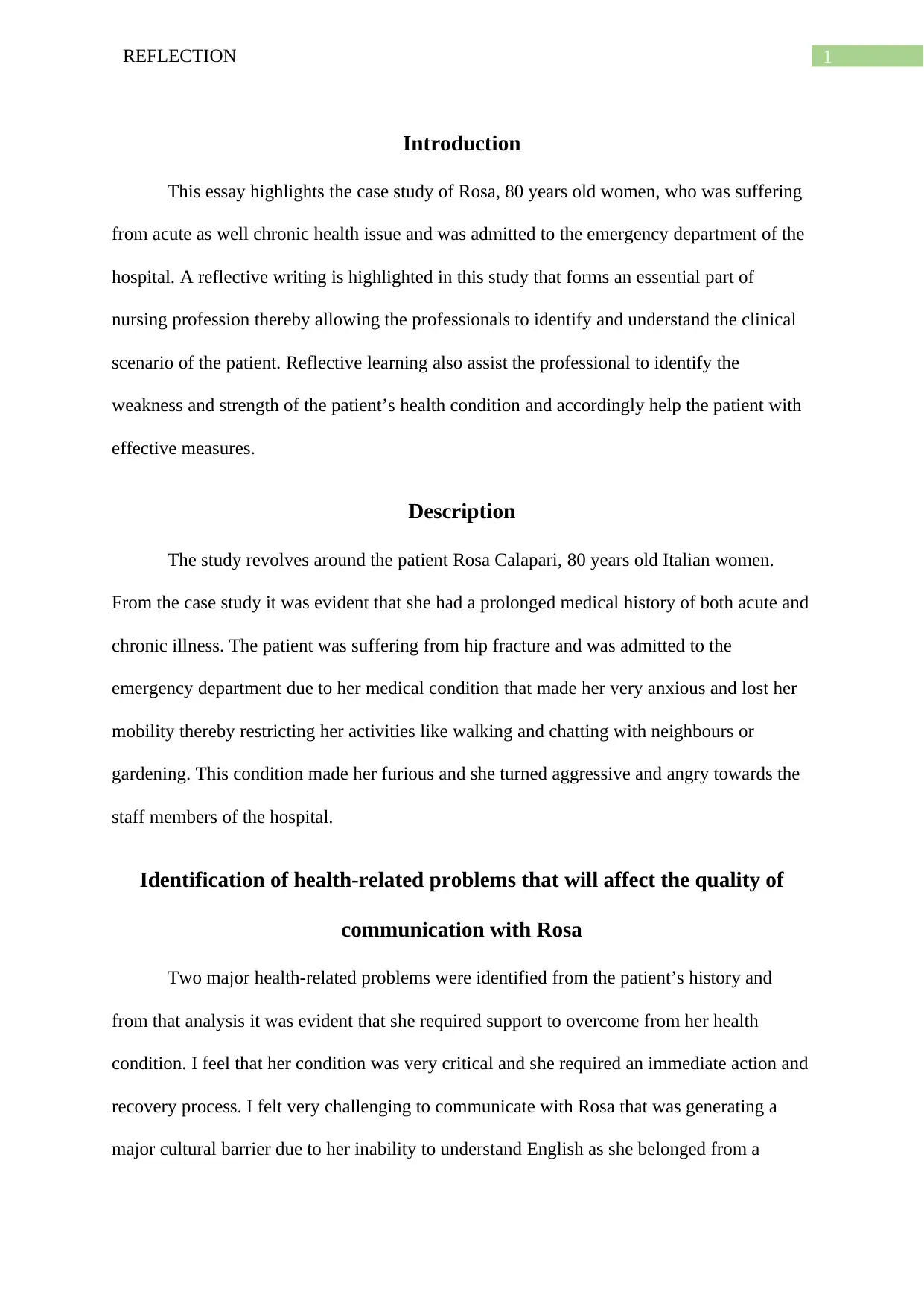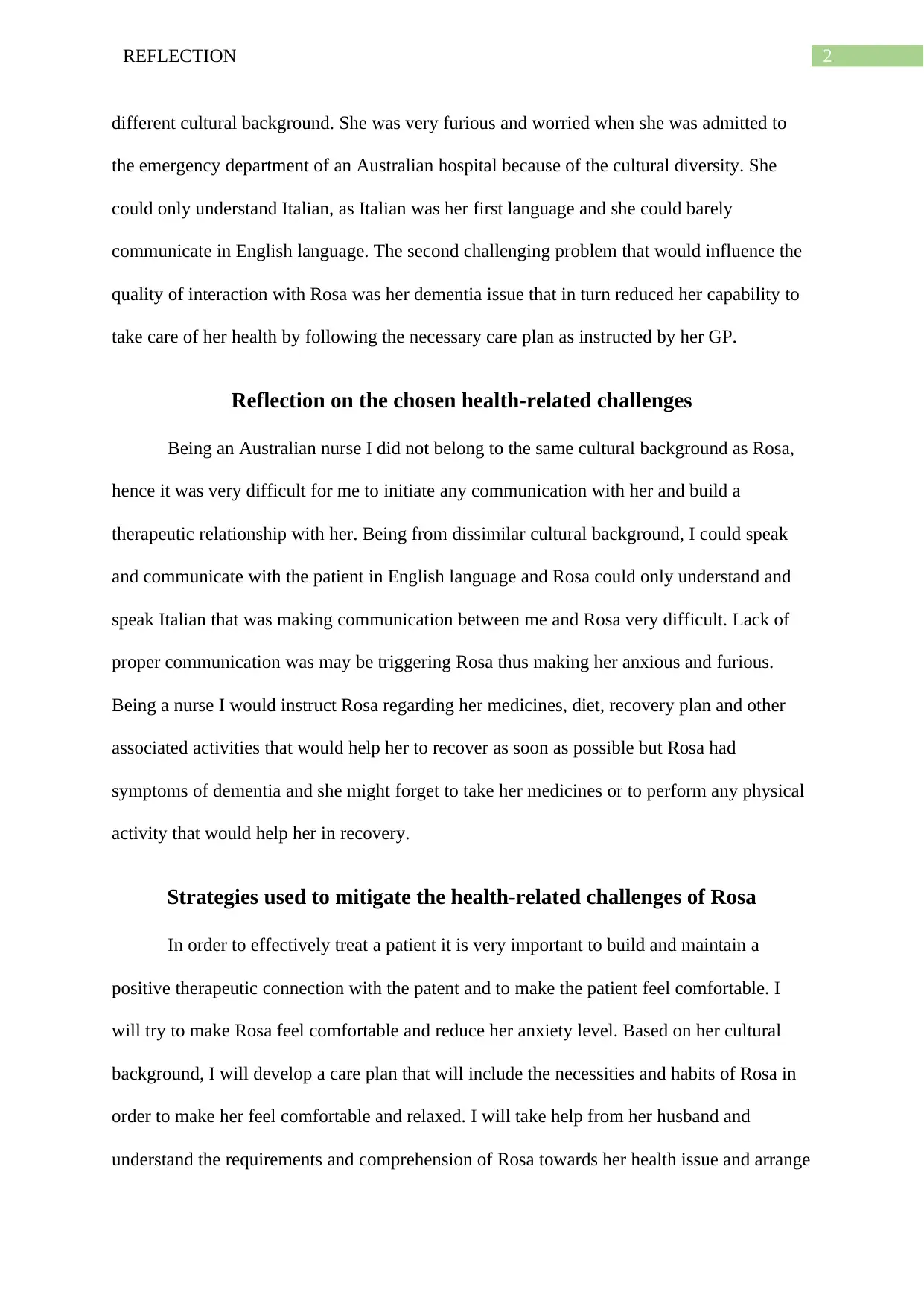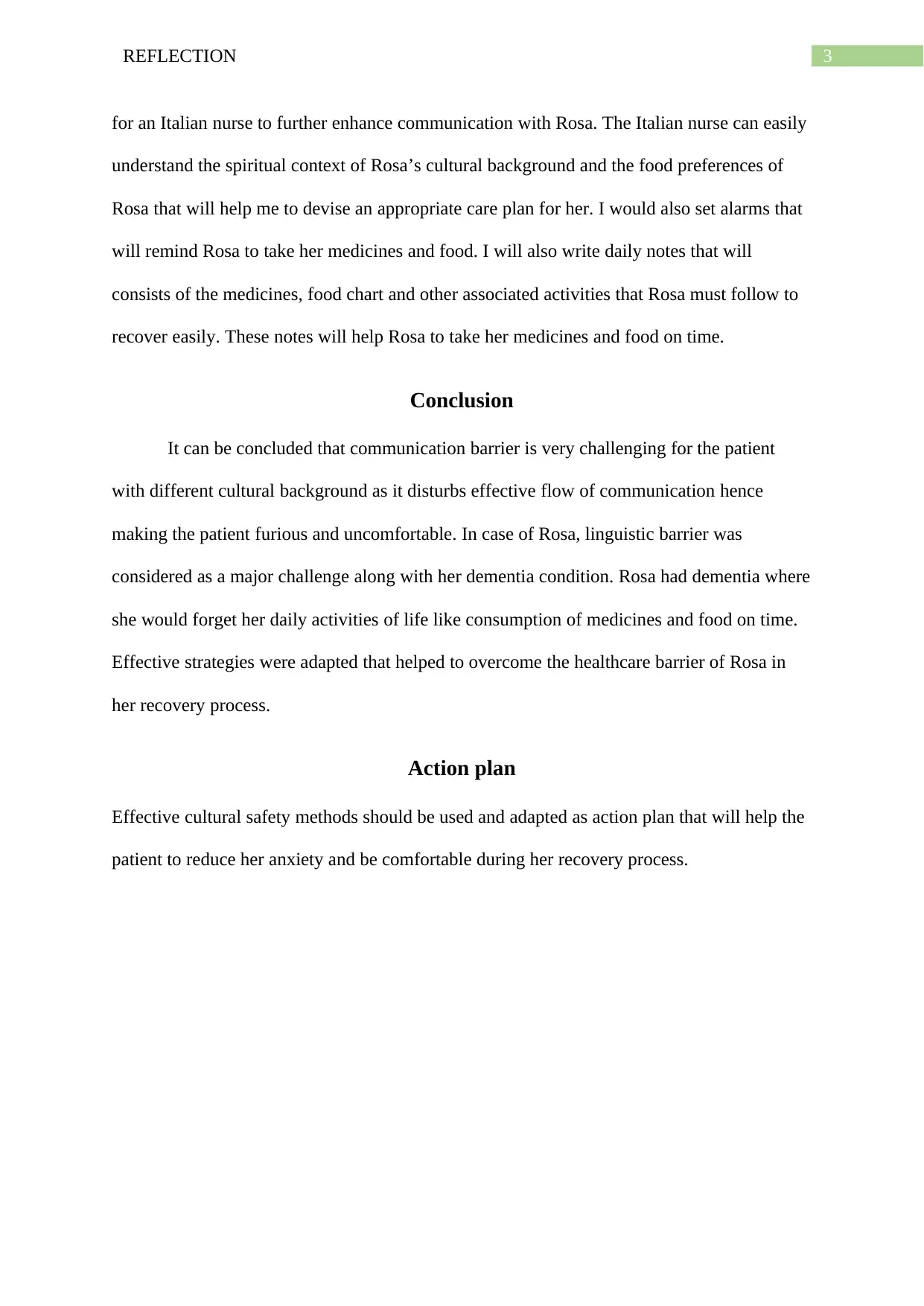University Nursing: Overcoming Communication Barriers in Patient Care
VerifiedAdded on 2023/03/17
|4
|874
|23
Journal and Reflective Writing
AI Summary
This reflective essay examines the case of Rosa, an 80-year-old woman admitted to the hospital with acute and chronic health issues, including a hip fracture and dementia, which significantly impacted her mobility and communication. The essay highlights the challenges faced by healthcare professionals, particularly communication barriers stemming from Rosa's cultural background (Italian) and her limited English proficiency, as well as her dementia. The author reflects on these challenges, recognizing the difficulties in building a therapeutic relationship and providing effective care. Strategies to mitigate these challenges are proposed, including seeking assistance from Rosa's husband, involving an Italian-speaking nurse to bridge the communication gap, and implementing reminders and written notes to manage her dementia and ensure adherence to the care plan. The essay concludes with an emphasis on the importance of cultural safety and effective communication in providing quality patient care, especially for patients with diverse backgrounds and cognitive impairments. The action plan focuses on using effective cultural safety methods to reduce patient anxiety and promote comfort during recovery.
1 out of 4











![[object Object]](/_next/static/media/star-bottom.7253800d.svg)